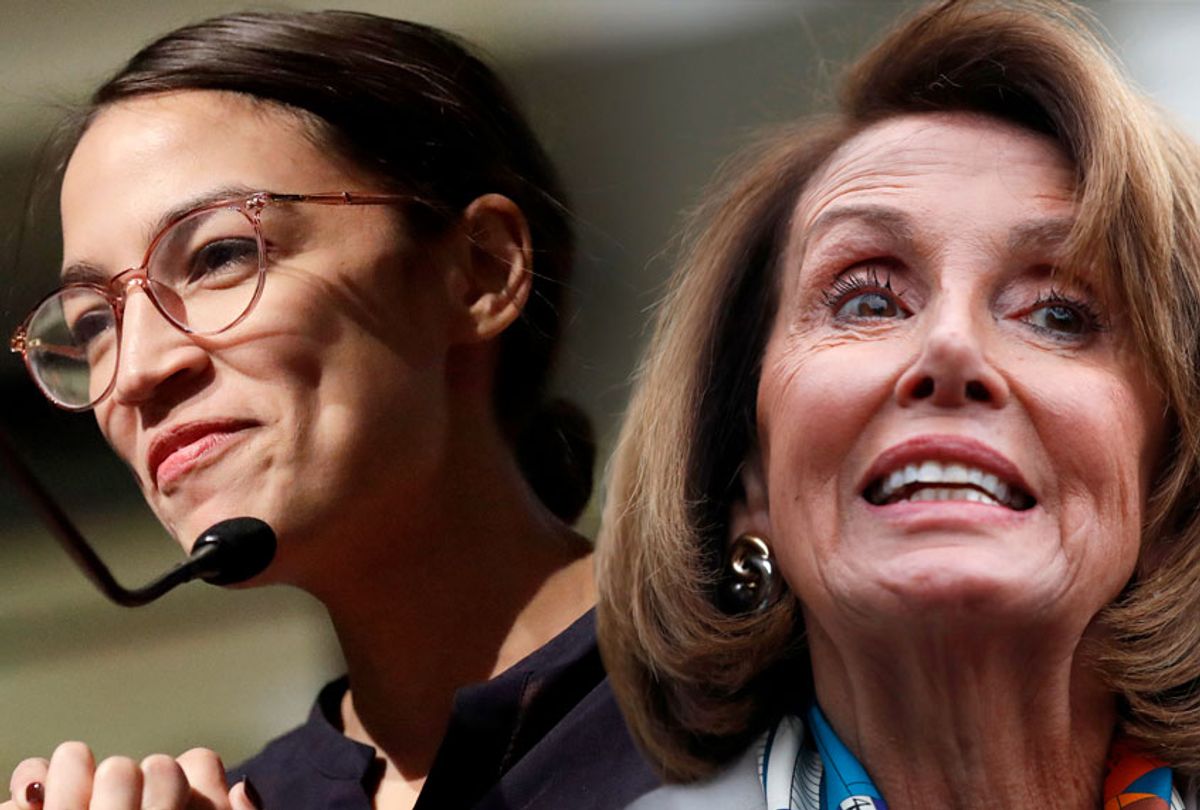Rep. Alexandria Ocasio-Cortez, D-N.Y., co-hosted a session about the effective use of Twitter in order to help her fellow Democrats better take advantage of the social media platform on Thursday.
The House Democratic Policy and Communications Committee had Ocasio-Cortez co-host the session with Rep. Jim Himes, D-Conn., in order to train their fellow Democrats "on the most effective ways to engage constituents on Twitter and the importance of digital storytelling," according to USA Today. The impetus behind this was to both help other Democrats capitalize on the successful social media strategy that Ocasio-Cortez has used to build her own brand and because, as Himes explained to reporters, "the older generation of members and senators is pretty clueless on the social media platforms. It’s pretty clear that a lot of members have 25-year-olds in their office" running their social media strategies.
"Class was in session this morning! I was thrilled to offer some insights on Twitter and social media to my. colleagues this morning," Ocasio-Cortez wrote on Twitter after the session. "Now Majority @WhipClyburn is teaching me what all the bells mean in the Capitol."
Ocasio-Cortez's post included a retweet from Rep. Ted Lieu, D-Calif., who wrote that he was "with @AOC, @RepDebDingell, @jahimes, @davidcicilline, @RepCartwright & @Twitter representatives at training session on Twitter for Democratic Members of Congress."
In a photograph that included himself, Ocasio-Cortez and Rep. Deb Dingell, D-MI, Lieu added "the below pic is called a selfie."
Social media has become an increasingly powerful force in American politics, even if many members of Congress have become slow to pick up on its potential. That fact was perhaps most powerfully illustrated when he testified before Congress and was asked questions which suggested that many senators did not understand basic facts about the Internet. At the same time, many rising political stars have succeeded because they managed to use social media platforms to their advantage.
"Mr. Trump expertly exploits journalists’ unwavering attention to their Twitter feeds, their competitive spirit and their ingrained journalistic conventions — chiefly, that what the president says is inherently newsworthy," Amanda Hess wrote for The New York Times in January about President Donald Trump's successful harnessing of Twitter. "As a developer and reality show star, he lobbied the news media for coverage. Now journalists feel obligated to pay attention to him. Mr. Trump overwhelms the media with boatloads of what was once a rare commodity: access. He creates impressions faster than journalists can check them. By the time they turn up the facts, the news cycle has moved on to his next missive, leaving less time (and reader attention) for the stories Mr. Trump does not highlight on his feed."
In a piece for Slate one year earlier, Hess deconstructed Trump's Twitter strategy, writing that "whether he realizes it or not—and he’s tweeted that he has 'a very high IQ,' so I’m assuming he does—his most Trump-ian tweets manage to hit upon all three of Aristotle’s modes of persuasion: logos (the appeal to logic), ethos (the appeal to credibility), and pathos (the appeal to emotion)."
Rep. Beto O'Rourke, D-Texas, has used Facebook with similar success, according to USA Today.
"He's not the first political candidate to jump on Facebook to mobilize supporters, raise money and get out the vote, but his campaign bet heavily on digital, establishing a direct line of communication with voters and donors in a bid to create the feeling of intimacy candidates usually can only get standing on someone's stoop," wrote USA Today reporters Jessica Guynn and Rick Jervis and Christopher Schnaars. "That strategy helped elevate the relatively low profile of the 45-year-old El Paso congressman as he takes on Cruz who has national name recognition and fundraising chops."



Shares